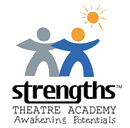Active vs. Passive Communication: Finding Your Voice in a Noisy World
Effective communication is the cornerstone of our daily lives, both personally and professionally. It plays a pivotal role in building relationships, resolving conflicts, and achieving success in various aspects of life. When it comes to communication styles, two prominent approaches stand out: active and passive communication. Understanding the differences between these two styles can empower individuals to choose the one that best suits their needs in different situations. In this article, we will explore the characteristics of active and passive communication, their advantages and disadvantages, and how to strike a balance between the two: active vs passive communication.
Active Communication: The Power of Assertion
Active communication, also known as assertive communication, involves expressing thoughts, feelings and needs openly and honestly while respecting the rights and opinions of others. It is characterized by clarity, confidence, and the ability to set boundaries effectively. Active communicators convey their ideas with conviction, ensuring that their message is heard and understood.
Visit: tips for active communication
Advantages of Active Communication
- Clarity: Active communicators are explicit about their thoughts and feelings, reducing the likelihood of misunderstandings or misinterpretations.
- Confidence: Speaking assertively boosts self-esteem and self-confidence, which can enhance your overall communication skills.
- Conflict Resolution: Active communication promotes constructive conflict resolution by encouraging open dialogue and compromise.
- Empowerment: It helps individuals assert their rights, needs, and opinions without feeling guilty or anxious.
- Effective Listening: Active communicators are also good listeners, as they value the input of others and seek mutual understanding. Watch your child thrive as they build essential life skills through our dynamic programs for personality development for kids designed to shape confident, empathetic, and well-rounded kids.
Disadvantages of Active Communication
- Perceived Aggressiveness: In some cases, assertiveness may be misinterpreted as aggression, especially when dealing with passive communicators.
- Requires Skill Development: Active communication requires practice and skill development to achieve the right balance of assertiveness without being overly dominant.
- Uncomfortable Conversations: Addressing sensitive topics may be challenging, and some people may avoid active communication to evade discomfort.
Visit: tips to improve reading
Passive Communication: The Silent Approach
Passive communication is characterized by an avoidance of confrontation and a tendency to yield to the opinions and desires of others. Passive communicators often suppress their thoughts and emotions to maintain harmony or avoid conflict. While this style can be beneficial in certain situations, it can also hinder personal growth and effective problem-solving.
Advantages of Passive Communication
- Avoids Conflict: Passive communication is excellent for maintaining harmony and avoiding conflicts that may arise from assertive or aggressive communication.
- Listening Skills: Passive communicators often excel at listening and empathizing with others, making them approachable and supportive.
- Minimizes Discomfort: It can reduce discomfort in situations where asserting oneself may not be the best course of action.
Visit: parenting in digital age
Disadvantages of Passive Communication
- Ineffective Problem Solving: Passivity may lead to unaddressed issues and ineffective problem-solving, as passive individuals tend to avoid confrontation and express their needs indirectly.
- Repressed Emotions: Constant suppression of one’s thoughts and emotions can lead to feelings of frustration, resentment, and low self-esteem.
- Lack of Assertiveness: Passive communicators may struggle to stand up for their rights and may be taken advantage of in personal and professional relationships. Discover the power within you through our transformative personality development course, where you’ll gain the skills and mindset for a more fulfilling life.
Balancing Act: Finding the Middle Ground
The key to effective communication lies in finding a balance between active and passive styles, a communication approach known as “assertive communication.” Assertive communication combines the strengths of both styles while minimizing their respective weaknesses.
Here are some tips for achieving assertive communication:
- Self-awareness: Recognize your communication style and its impact on your interactions with others.
- Practice Active Listening: Actively engage with others by listening attentively, acknowledging their perspective, and asking clarifying questions.
- Use “I” Statements: Express your thoughts and feelings using “I” statements, such as “I feel” or “I think,” to avoid placing blame on others.
- Set Boundaries: Clearly define your boundaries and assert them when necessary.
- Constructive Feedback: Offer constructive feedback respectfully, focusing on the behavior or situation rather than attacking the person.
- Empathy: Show empathy towards others’ feelings and viewpoints, even when expressing your own.
Visit: benefits of adaptability
Conclusion
Effective communication is a dynamic skill that can significantly impact our personal and professional lives. Active, passive, and assertive communication styles each have their place, and understanding when to employ them is crucial. While active communication empowers individuals to express themselves confidently and set boundaries, passive communication fosters harmony and empathy. Striking a balance between these two extremes through assertive communication can enhance relationships, foster effective problem-solving, and promote personal growth. By mastering this skill, individuals can navigate the complex world of human interaction with grace and confidence, ensuring their voices are heard while respecting the voices of others.
Originally published at https://strengthstheatreacademy.blogspot.com.
